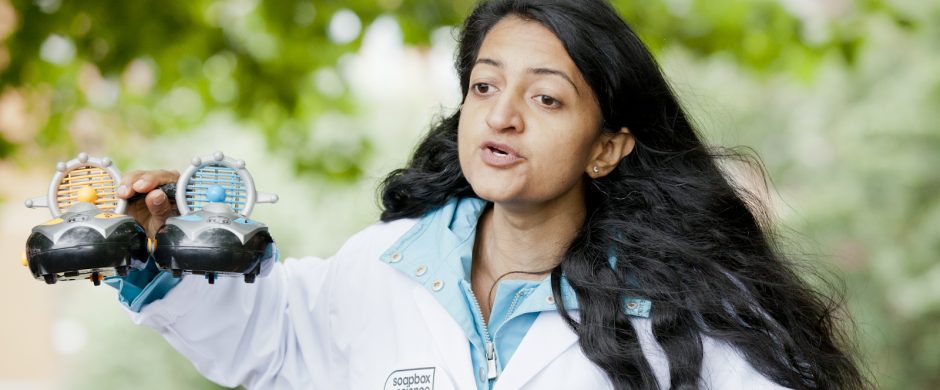.
On the 13th of June 2015, Soapbox Science will transform Exeter into a hub of scientific learning and discussion, as some of Devon’s leading female scientists take to their soapboxes to showcase science to the general public. The event’s mission is the same as the original London event: to help eliminate gender inequality in science by raising the profile, and challenging the public’s view, of women and science. If you’d like to see what Soapbox Science looks like in action, have a look at the Soapbox Science 2012 video
Details of the location and timing of the event
Date: Saturday 13th June 2015
Address: Near Princesshay Square, Exeter City Centre
Time: 1-4 pm
Sponsors
We couldn’t run this event without the generous logistical and financial support of our sponsors. We are grateful to STFC and the College of Life and Environmental Sciences for supporting our initiative in Exeter. We also would like to thank Creative Carpentry South West for their help building our soapboxes!
Several of our speakers are then individually sponsored:
The Natural Environment Research Council is sponsoring Miss Lindsay Walker & Dr Angela Gallego-Sala. The Natural Environment Research Council is the UK’s largest funder of independent environmental science, training and innovation, delivered through universities and research centres. Formed by Royal Charter in 1965, the Natural Environment Research Council marks its 50th anniversary in 2015. Throughout NERC’s Summer of Science, NERC researchers (such as Lindsay and Angela) will be taking their work and enthusiasm out to the public, branching out from the usual science festival venues into shopping centres, music festivals, pubs and even beaches.
.
Speakers
2015 saw strong competition to appear at the event with over 20 applications received. The winners and their discussion topics included:
Dr Natalie Garrett (@oojeyboojey), University of Exeter “Brilliant brains and biophotonics”
Dr Sylvia McLain (@girlinterruptin), University of Oxford “The importance of water in biology – insights from the atomic scale”
Dr Angela Gallego-Sala, University of Exeter “How peatlands might help us mitigate and cope with climate change”
Dr Cristina Lazzeroni, University of Birmingham “How we ended up in a Universe made almost entirely of matter”
Dr Lucy Hawkes (@DrLucyHawkes), University of Exeter “Fish and (computer) chips (and more!)”
Dr Clare Dobbs (@ClareDobbs), University of Exeter “From dark matter to black holes: a journey through the Milky Way”
Miss Miriam Garcia, University of Exeter “Tidal energy in estuaries”
Dr Ana Neves, University of Exeter “Smart-textiles: What if you could make a phone call using your sweater instead of your mobile?”
Miss Lindsay Walker (@Linds__Walker), University of Exeter “Why contribute to cooperative activities?”
Ms Hannah Wakeford (@stellarplanet), University of Exeter “Exploring alien planets”
Dr Erin Reardon (@fishflo), University of Exeter “Marine fish poo: missing key to the ocean carbon cycle?”
Dr Anna Adlam (@dradlam), University of Exeter “What happens to our brain when it is damaged and how can we help it to recover?”
